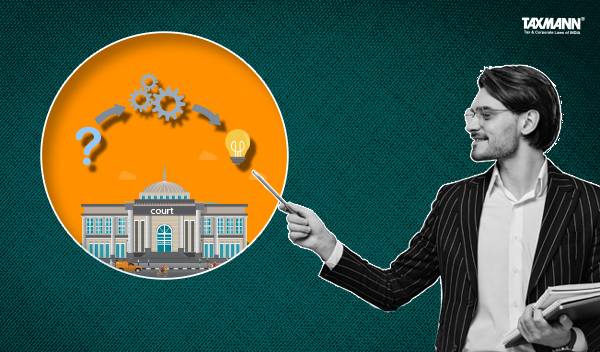Sum Received From Employer on Account of Out-of-Court Settlement Isn’t Taxable as Profit in Lieu of Salary | ITAT
- Blog|News|Income Tax|
- 2 Min Read
- By Taxmann
- |
- Last Updated on 16 April, 2024

Case Details: ITO v. Avirook Sen - [2024] 161 taxmann.com 462 (Delhi - Trib.)
Judiciary and Counsel Details
- G.S. Pannu, Vice President & MS. Astha Chandra, Judicial Member
- Vivek Bansal & Vishal Chechi, Advs. for the Appellant.
- Anuj Garg, Sr. DR for the Respondent.
Facts of the Case
The assessee, an individual, received Rs. 2 Crore from his employer, INX Media, after his termination from service. The assessee voluntarily settled the case as his reputation was diminished due to extreme harassment and ill-treatment caused by the employer.
Assessing Officer (AO) added said amount along with Rs. 13,08,444 as perquisites in the assessee’s income. The AO treated the receipt as profits in lieu of salary. On appeal, CIT(A) deleted the additions made by AO. Aggrieved-AO filed the instant appeal before the Tribunal.
ITAT Held
The Tribunal held that the payment of ex-gratia compensation was voluntary in nature without the employer having any obligation to pay further amount to the assessee in terms of any service rule. Thus, it would not amount to compensation in terms of section 17(3)(i).
The AO relied upon various Madras High Court judgments wherein it was held that the amount received for encashment of leave salary would be a profit in lieu of salary and taxable under the “voluntary Separation Programme”.
He also relied upon the decision of the Hon’ble Delhi High Court in the case of Deepak Verma (2010) 194 taxman 265 (Delhi) wherein it was held that if the payment is made ex gratia or voluntarily by an employer out of his own sweet will and is not conditioned by any legal duty or legal obligation, either on sympathetic grounds or otherwise, such payment is not to be treated as profit in lieu of salary under sub-clause (i) of section 17(3).
In the present case, the payment of ex-gratia compensation was voluntary in nature without there being any obligation on the part of the employer to pay further amount to the assessee in terms of any service rule. Therefore, it would not amount to compensation in terms of section 17(3)(i) of the Act. The impugned additions were rightly deleted by the CIT(A).
List of Cases Referred to
- CIT v. Deepak Verma [2010] 7 taxmann.com 53/236 CTR 213/[2011] 339 ITR 475/[2010] 194 Taxman 265 (Delhi) (para 7),
- Subhash Chander Goel v. ITO [2016] 65 taxmann.com 216/177 TTJ 353/156 ITD 808 (Chandigarh – Trib.) (para 9),
- G.N. Badami v. CIT [1998] 144 CTR 289/[1999] 240 ITR 263 (Madras) (para 10)
- P. Arunachalam v. CIT [2000] 240 ITR 827 (para 10).
Disclaimer: The content/information published on the website is only for general information of the user and shall not be construed as legal advice. While the Taxmann has exercised reasonable efforts to ensure the veracity of information/content published, Taxmann shall be under no liability in any manner whatsoever for incorrect information, if any.



 CA | CS | CMA
CA | CS | CMA
